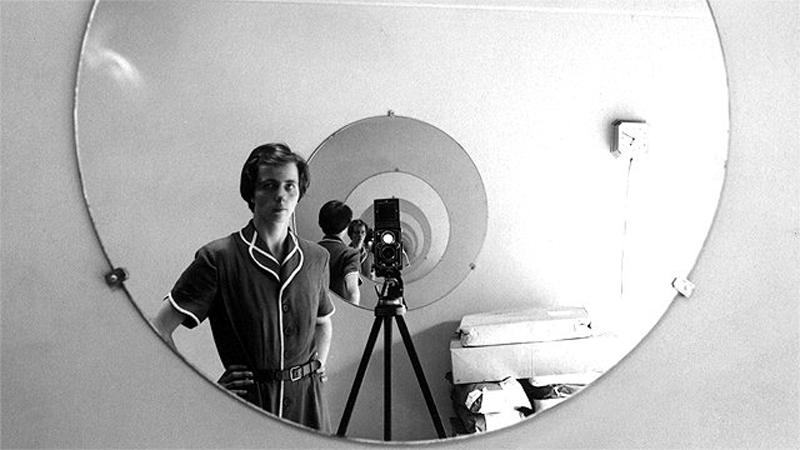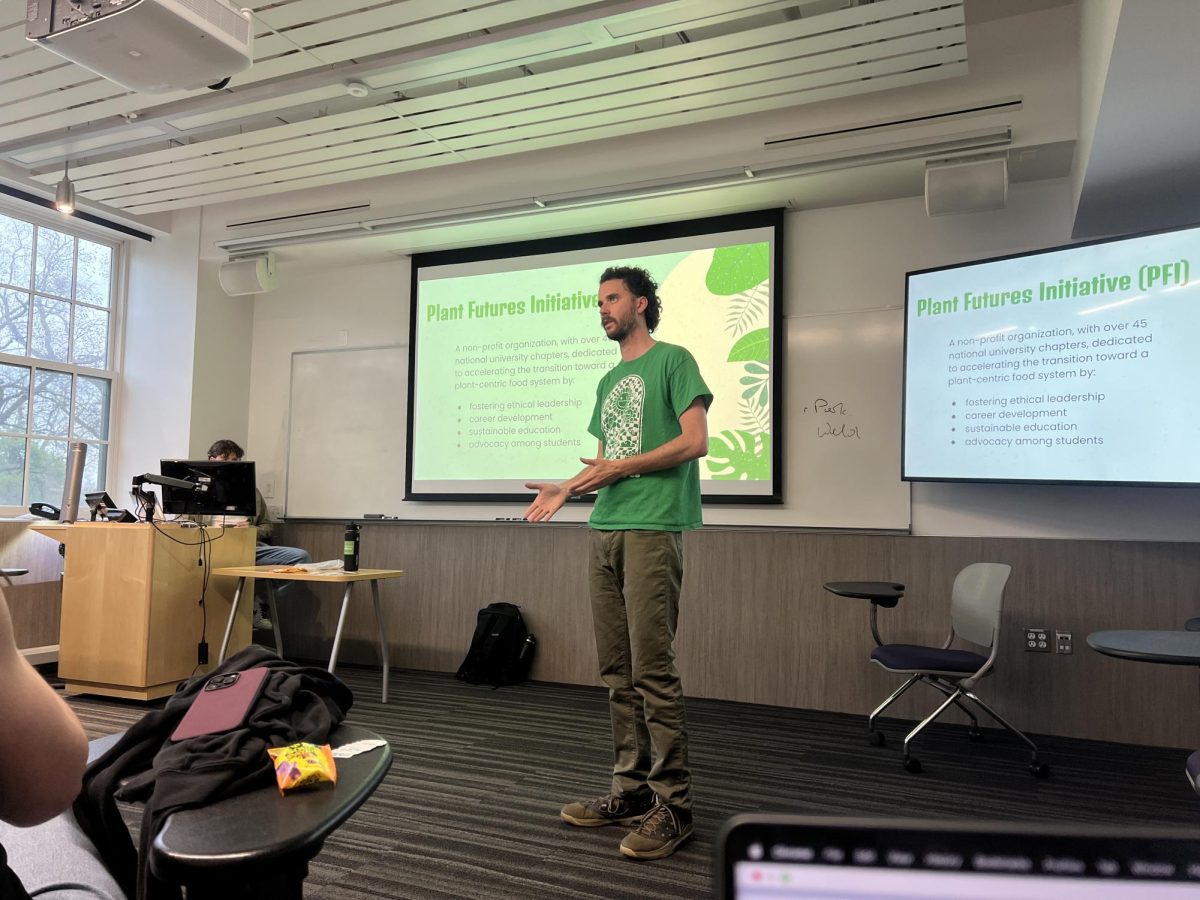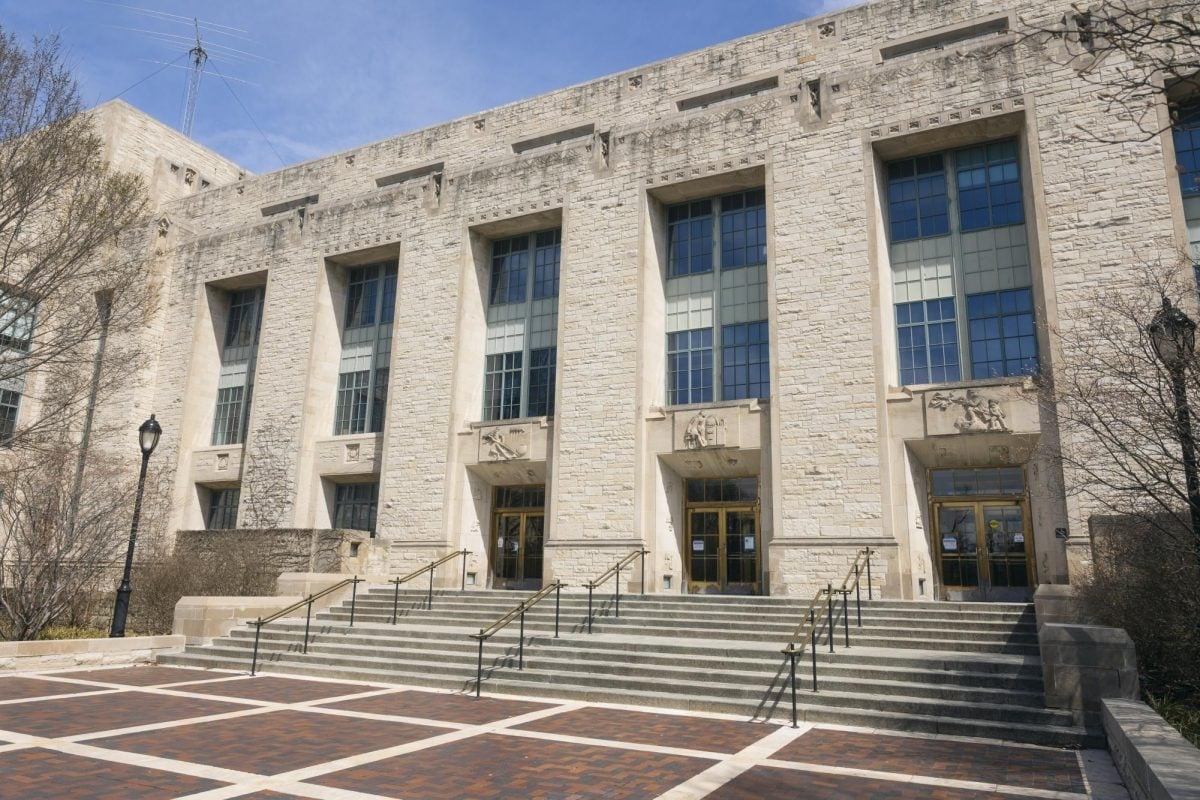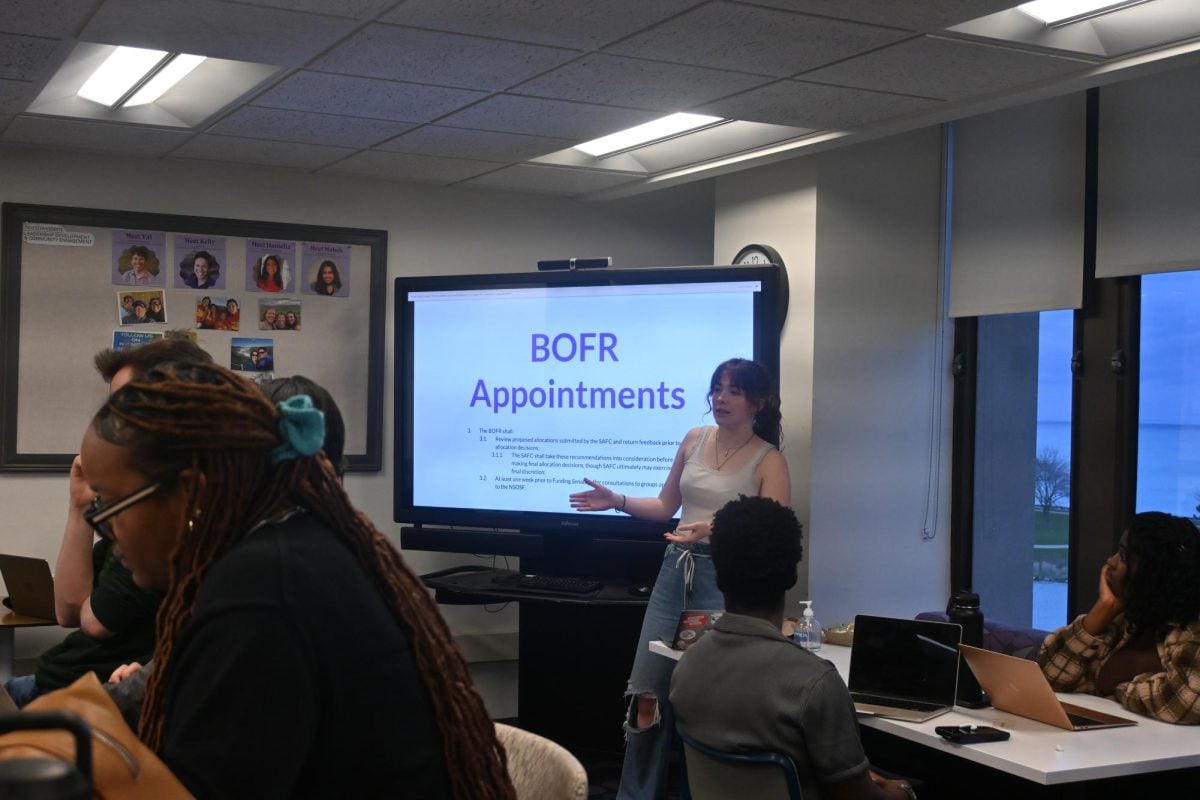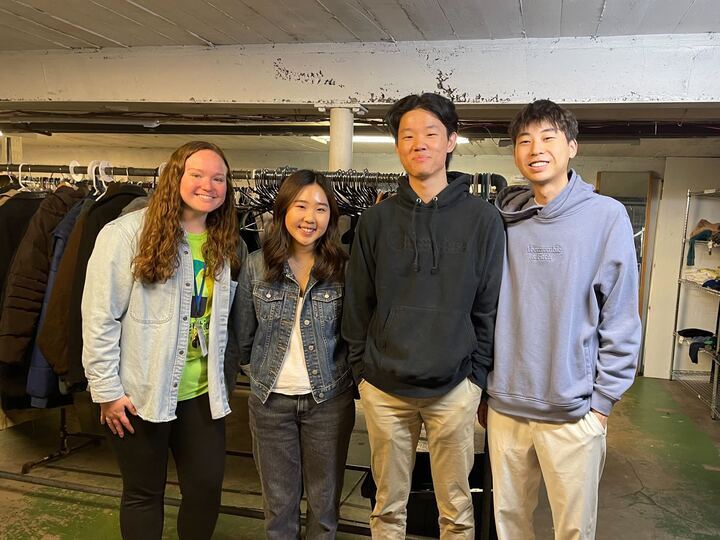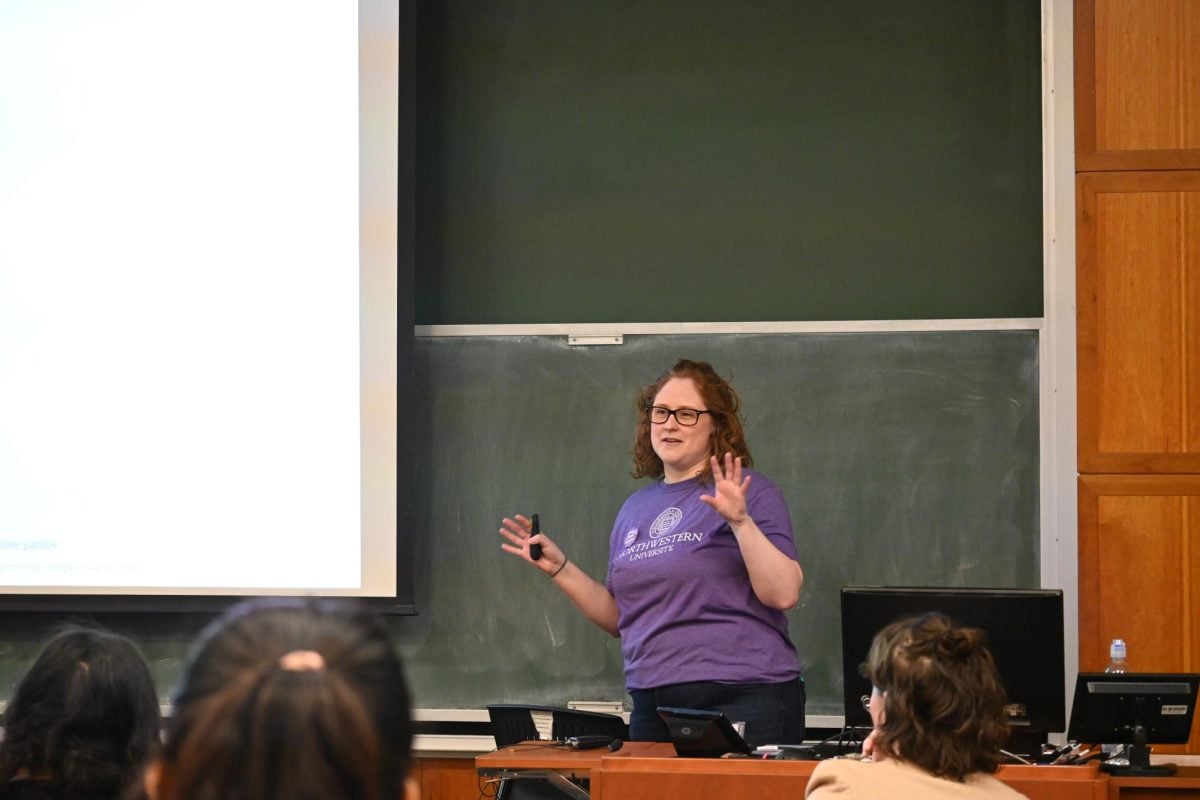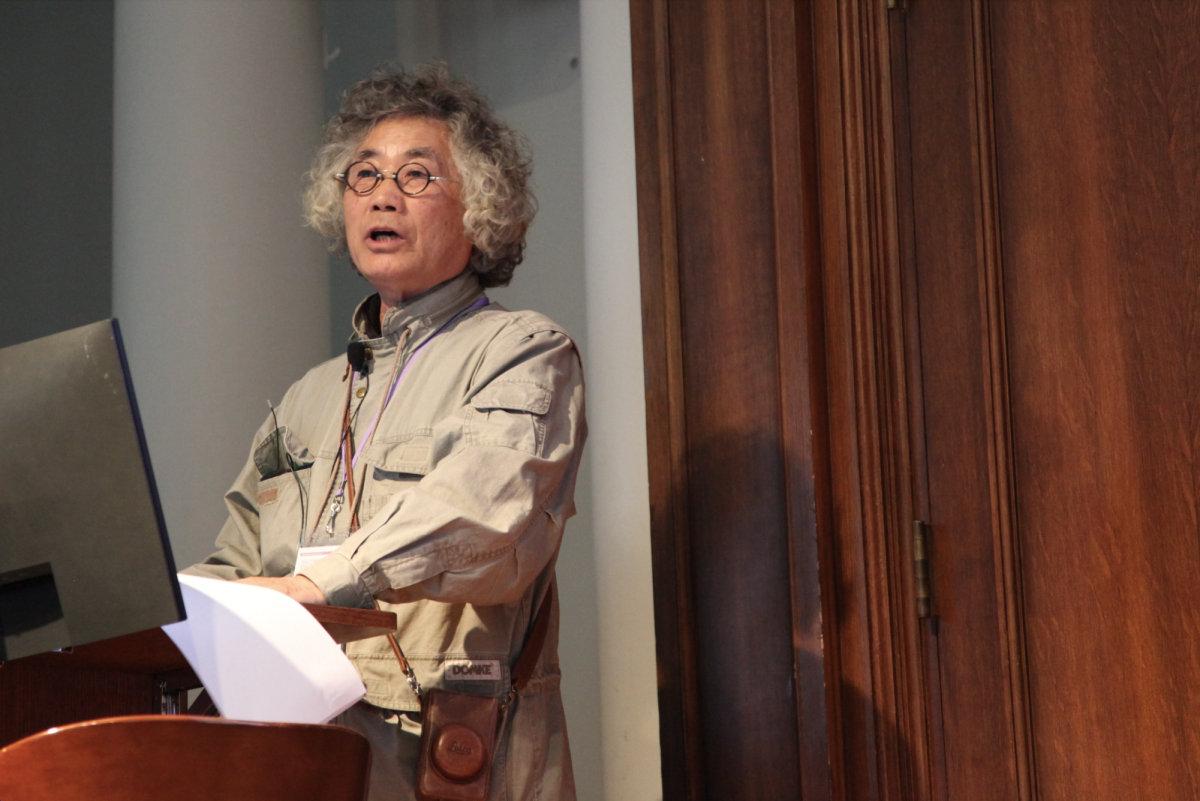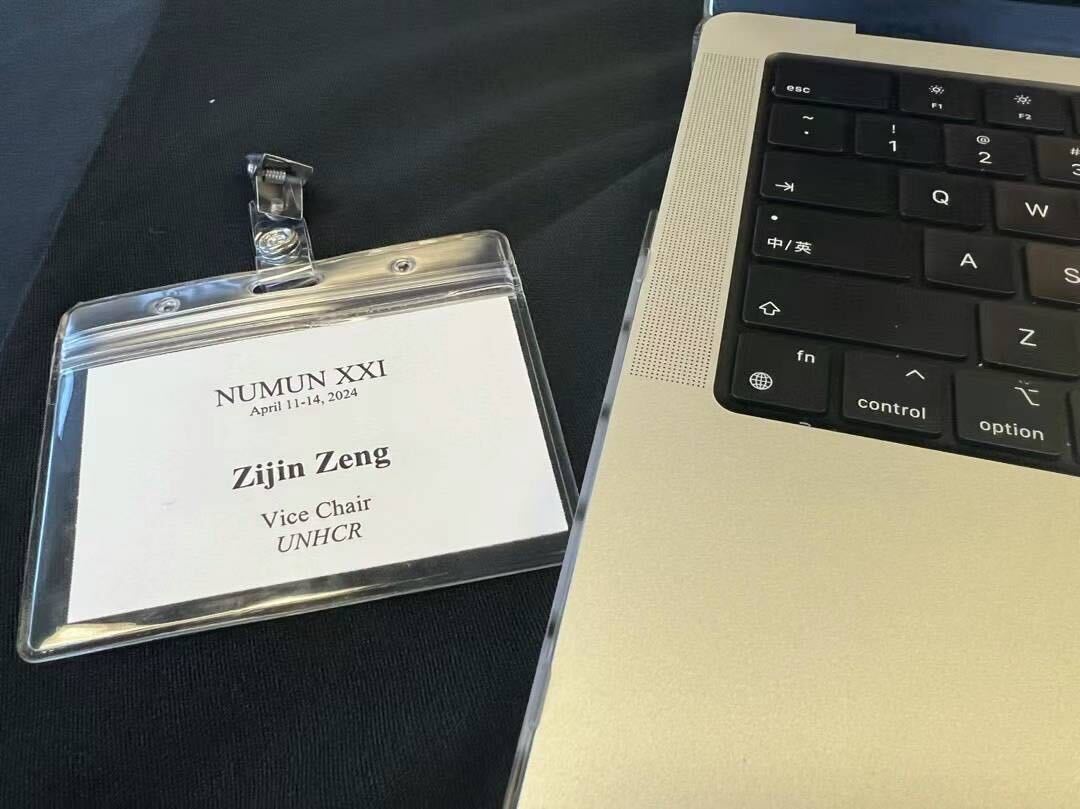Northwestern’s Block Cinema on Saturday hosted a screening of a BBC documentary on the late photographer Vivian Maier.
Art Prof. Pamela Bannos, who has studied Maier and is featured in the documentary, introduced the film, “Who Took Nanny’s Pictures?” The audience of 150 people filled the cinema, and museum officials were forced to turn others away. Attendees included individuals who employed Maier, know her work and were even her former neighbors.
The documentary calls Maier, who died in 2009, “a poet of the suburbia.” She spent most of her later years in Chicago but also lived in New York and France.
According to the documentary, Maier took more than 150,000 photos and was a “a street photographer before the term was invented.” The film, directed by Jill Nicholls, brings to light people’s different opinions of Maier and her work.
For instance, the documentary said, her neighbors in a French village thought she was a spy who carried a gun. One person called her abrasive and “in-your-face,” while another said she was conversational. The manager of the Chicago movie theater Maier frequented wondered if she was crazy.
She may as well have been “invented by people,” Bannos said.
But for some people like Judith Swisher, a former employer of Maier who attended the screening, Maier was not a “stereotypic private person” but a real human being.
“She did have a wonderful humor … a warmth about her,” Swisher said. “She really did care about people.”
Maier stayed with the Swishers from January 1994 to December 1996 while she cared for Swisher’s mother. Although she did not discuss photography with them, she told them early on that she secured nanny positions to give her enough financial stability to allow her to pursue other passions, said Swisher’s husband, Charles Swisher.
Maier stored her photos in a locker until she could no longer pay her bills. She then auctioned the photos. Their popularity gradually grew as people uploaded them to the Internet.
In France, she photographed Communist Party rallies, mountains, friends, children, mothers and herself. Maier also captured frames of marginalized people.
The wealthy families she worked for gave Maier access to posh places and people to photograph. These included the Hotel Astor in New York, where she took photos of the Macy’s Thanksgiving Day Parade. She also sought out access to these subjects on her own, like when she photographed Salvador Dali as she followed him out of the Museum of Modern Art.
“Everyone has, somewhere in their core, an artistic side and the fact that she was ‘just a nanny’ reconfirms that,” said Jeanne Lacasse, an interior decorator from Evanston.
John Maloof, who directed a film on Maier’s life titled “Finding Vivian Maier,” currently owns about 90 percent of her work. Jeffery Goldstein and Ron Slattery have the rest.
Art critics have expressed concern about the presence of financial interest and biases among those that expose and edit Maier’s work. Bannos also said that men’s research on her work makes it more difficult to understand her as a woman.
The documentary highlighted Maier’s propensity to take photos of herself and everything around her as a precursor to today’s active photography culture.
“Her compulsion to take pictures was her life,” the documentary said. “Vivian has gone viral.”
If the BBC allows, the Block Cinema plans to host another screening of the documentary.
Email: [email protected]

